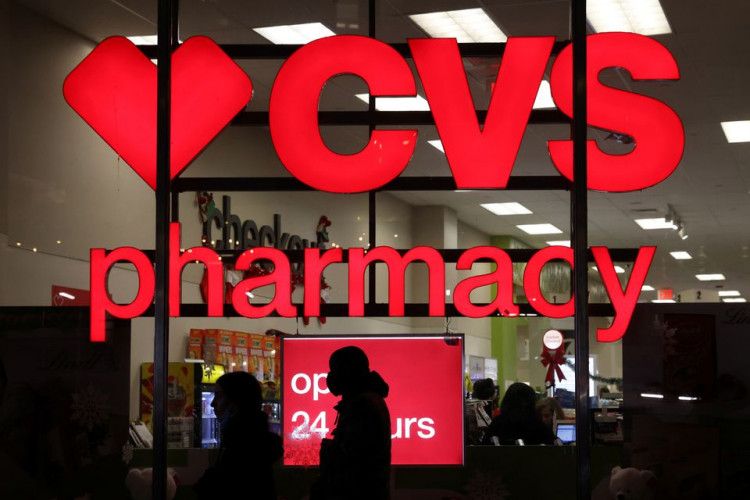CVS Health reported stronger-than-expected earnings and revenue for the first quarter Thursday, raising its full-year guidance as improvement in its insurance business helped ease investor concerns. The company posted adjusted earnings per share of $2.25, beating Wall Street's consensus estimate of $1.70, and revenue of $94.59 billion, ahead of expectations for $93.64 billion. Shares rose nearly 7% in premarket trading.
CVS now projects full-year adjusted earnings between $6.00 and $6.20 per share, up from its previous range of $5.75 to $6.00. The company maintained a cautious outlook, citing persistent medical cost inflation and macroeconomic uncertainty, and did not provide a full-year revenue forecast.
Net income for the quarter was $1.78 billion, or $1.41 per share, up from $1.12 billion, or 88 cents per share, a year earlier. The improvement was driven largely by the company's Aetna insurance unit, which posted revenue of $34.81 billion, an 8% increase year-over-year, and adjusted operating income of $1.99 billion, up from $732 million.
Aetna's medical benefit ratio declined to 87.3% from 90.4% a year ago, indicating improved profitability. "We got smarter about the markets that we wanted and the lives that we wanted to compete for," CVS CEO David Joyner said in an interview with CNBC. "We actually have planned and budgeted for the elevated trends."
Joyner also noted the company is monitoring potential price impacts from upcoming Trump administration tariffs on imported pharmaceuticals. "It is highly dependent on what happens in the next week or two," he said.
The company was hit with a $431 million charge related to premium deficiency reserves, reflecting expected future losses in the 2025 coverage year. It also faces legal headwinds: a jury recently found CVS subsidiary Omnicare liable for dispensing drugs without valid prescriptions. CVS said it plans to appeal and adjusted its GAAP earnings guidance downward as a result.
CVS announced Thursday that Aetna will exit Affordable Care Act (ACA) exchanges starting in 2026, allowing tighter cost control and supporting profit margins. "I think that investment and talent that allowed us to focus on both the execution and the operation ... actually helped establish the performance that you're seeing," Joyner said, referencing executive changes made during the company's ongoing $2 billion cost-cutting plan.
Retail pharmacy sales totaled $31.91 billion, up 11% from a year earlier but missing StreetAccount estimates of $35.27 billion. CVS said the segment, which includes over 9,000 stores, has been pressured by lower prescription reimbursements and softer consumer spending.
The health services segment, including pharmacy benefit manager Caremark, posted revenue of $43.46 billion, up nearly 8% from the year-ago period. That missed analysts' estimates by a small margin.
CVS also made two significant announcements related to weight-loss drugs. The company will add Novo Nordisk's GLP-1 injectable Wegovy as the preferred drug on its commercial formularies, excluding Eli Lilly's Zepbound, beginning July 1, 2025. "Caremark was able to negotiate Wegovy against Zepbound to determine which manufacturer of these clinically similar products could deliver the greatest overall value," a spokesperson told Yahoo Finance.
CVS further revealed it has become the first retail pharmacy partner for NovoCare, Novo Nordisk's direct-to-consumer platform. "This will enable CVS Pharmacy to provide convenient, safe and affordable access to Wegovy for eligible patients at its more than 9,000 community health locations across the country," the company said.




